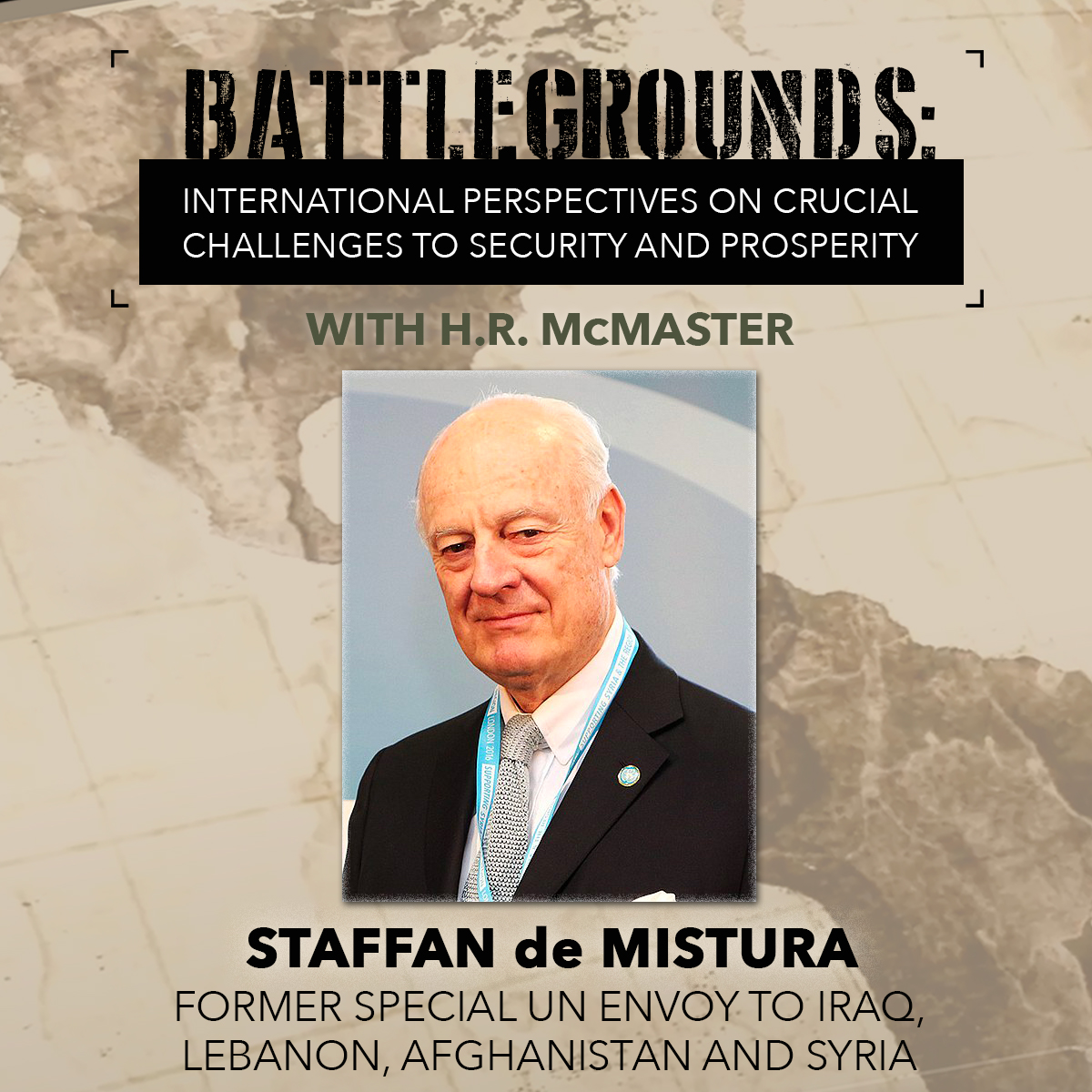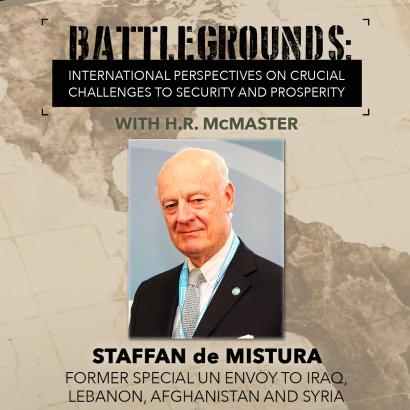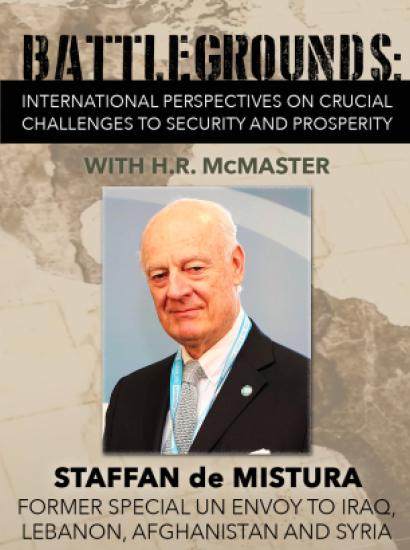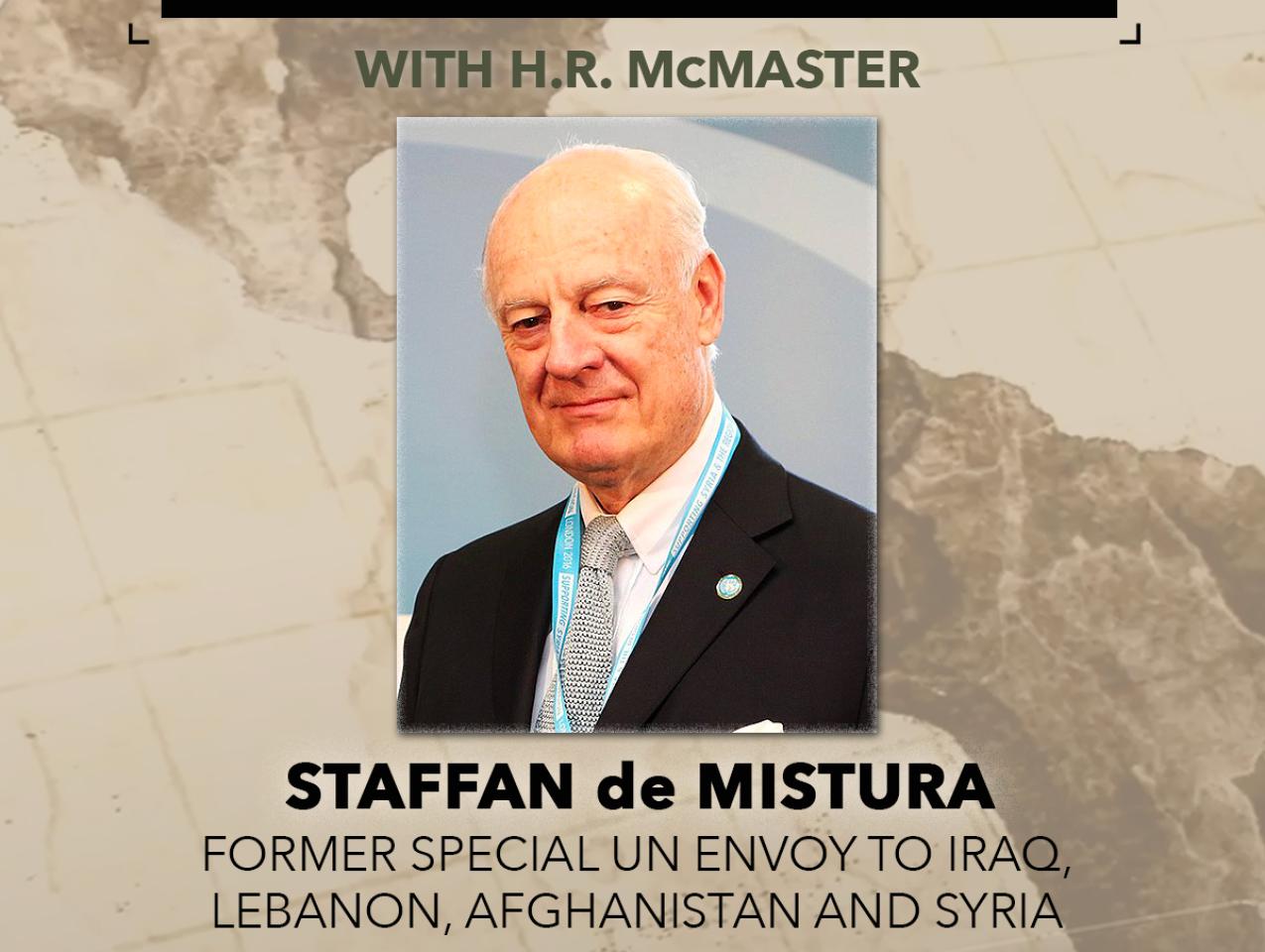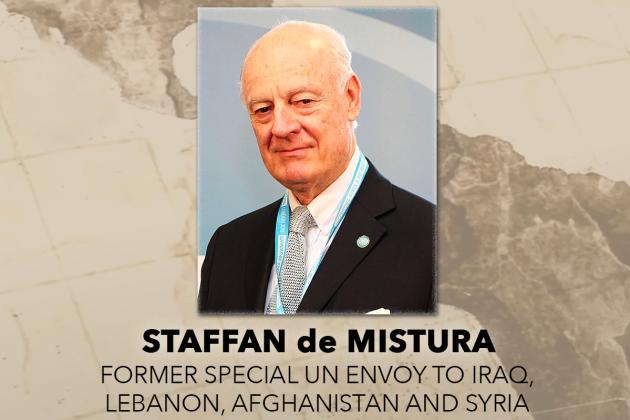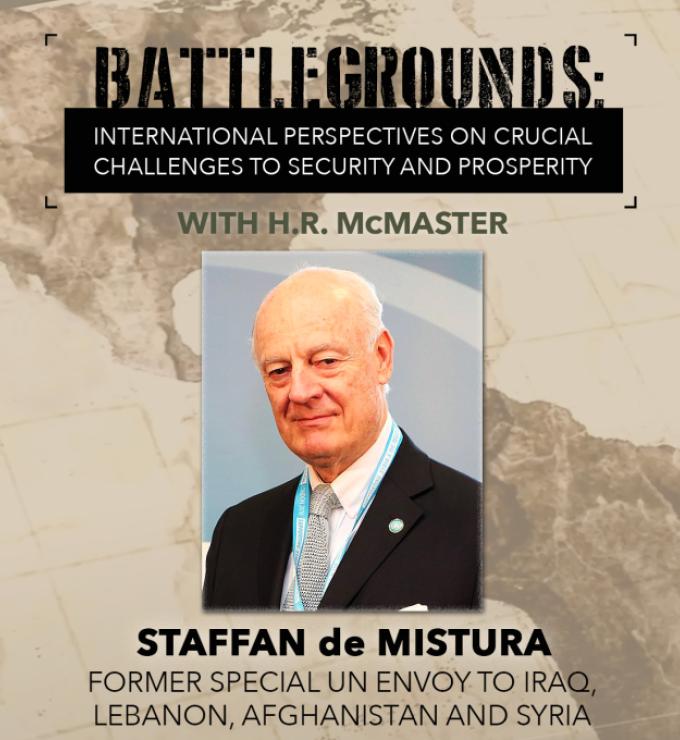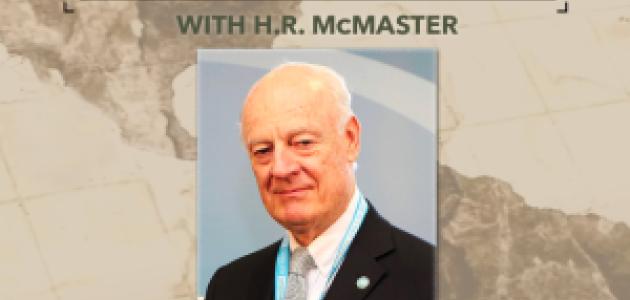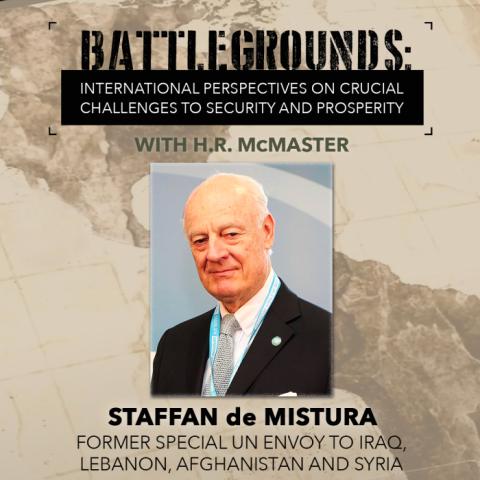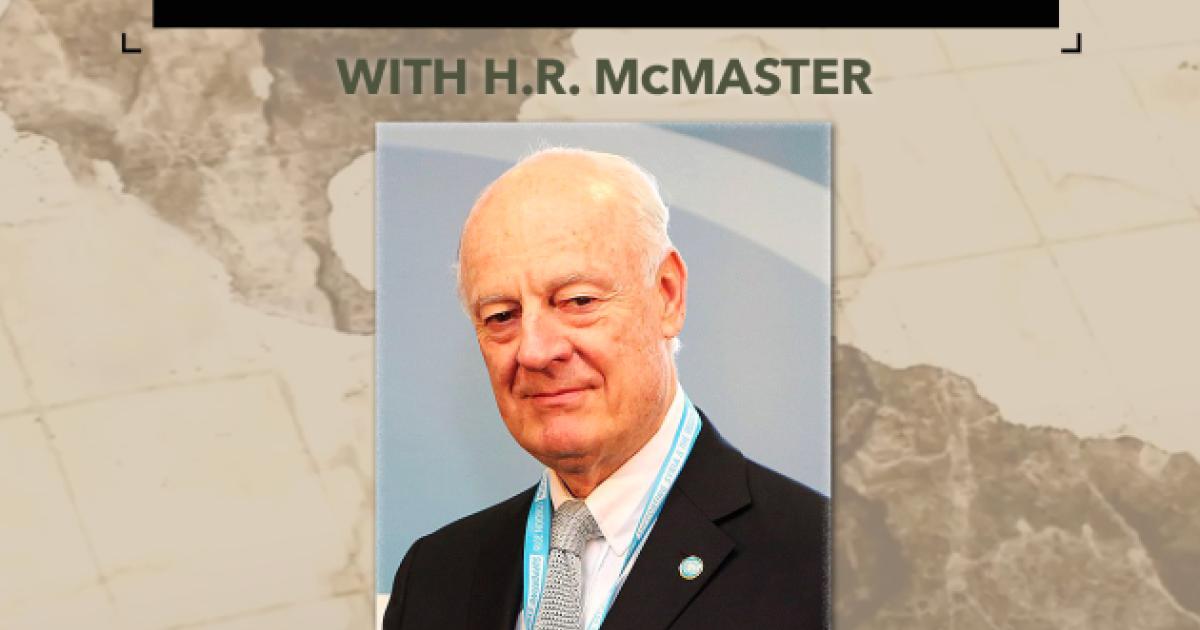The United States, Europe, and other defenders of the free world need to establish military leverage in order to create the conditions for peaceful political solutions to violence in Syria, Iraq, and Afghanistan, argued United Nations diplomat Staffan de Mistura in the most recent episode of Hoover’s Battlegrounds series, hosted by Fouad and Michelle Ajami Senior Fellow H. R. McMaster.
The series, in conjunction with McMaster’s book of the same title, aims to inform audiences about global issues from the perspective of American allies and security partners.
De Mistura has served on twenty-one missions in his over forty years in diplomatic service to the United Nations. In this episode, he discussed his work as a special envoy in Syria (2014–18), Afghanistan (2010–11), and Iraq (2007–9), and how each country might secure a future of peace and stability.
He described the Syrian conflict as unfolding in three waves. It started with protests from citizens for greater political freedom during the so-called Arab Spring of 2011. The government of Bashir al-Assad subsequently imposed a violent crackdown against its opposition.
Second, several Middle East actors became involved along sectarian lines. In the third stage, the conflict drew in global players. Russia and Iran provided support to the Assad regime, while the United States, Turkey, and much of Europe backed the Free Syrian Army. De Mistura estimated that fifteen countries have been involved in the civil war and at least six armies have engaged in combat operations.
According to de Mistura, there were three game changers during the course of the conflict: 1) the 2015 Russian military intervention that prevented the collapse of the Assad regime; 2) a refugee crisis that resulted in the flow of millions of migrants westward into Europe; and 3) a global terror campaign deployed by the Islamic State of Iraq and Syria (ISIS) whose impact could be felt as far away as a regional center in San Bernardino, California, where fourteen people were killed and twenty-two injured during a mass shooting in December 2015.
De Mistura said that had the Obama administration committed to military action after the Assad regime’s use of chemical weapons against opponents in 2013, Russia would not have intervened. However, he maintained, after the long wars in Iraq and Afghanistan, the United States probably lacked the political will to engage in another conflict.
De Mistura was a witness to an August 2016 meeting in Geneva between then US secretary of state John Kerry and Russian foreign minister Sergei Lavrov, in which the two countries’ chief diplomats came to agreement to ground the Syrian Air Force and separate extremists from moderates in the Syrian opposition. De Mistura held that this agreement showed promise but that Assad was not willing to cooperate.
De Mistura is convinced that Russia, because of limited financial resources, does not want to intervene in Syria over the long term. Moscow would like to persuade the Assad regime to accept a political solution. He maintained that Europe has the opportunity to gain greater influence in Syria as it has the means to help rebuild that country.
De Mistura explained that inconsistent US policies had precipitated a series of political crises that have also had regional and global ramifications, including in the Syrian Civil War. De Mistura said that while he believed the initial 2003 invasion of Iraq was a strategic mistake, so was rapid American disengagement nearly a decade later. During surge operations of 2007–8, US forces were able to engage Sunni tribes in regions such as Anbar Province, root out extremist elements, and assuage sectarian divisions. Without US pressure, the Shiite majority led by then prime minister Nouri al-Maliki alienated Sunni tribal leaders and militias, allowing the power vacuum to be assumed by Daesh militants led by Abu Bakr al-Baghdadi.
De Mistura likened the Trump administration’s decision to withdraw troops from Afghanistan to Obama’s Iraq policy a decade ago. He said that while American leaders should be responsive to their citizens’ wishes to end the war in Afghanistan, an exit strategy should be achieved in a manner that helps secure the gains made by coalition forces. He advocated that future development aid be contingent upon Kabul’s support for the education and professional growth of Afghan women. Fundamental change can only be brought about in Afghan society, de Mistura argued, if women, who make up 51 percent of the population, can fully participate in that country’s nascent democracy.
De Mistura concluded the conversation with his perspective on the increasing American skepticism of the United Nations and other international organizations. He acknowledged that while the UN has had its share of failures and needs some reform (especially in the Security Council, which experiences constant gridlock), the body is crucial to solving challenges that transcend borders, such as climate change, poverty, famine, and most recently the global COVID-19 pandemic. Furthermore, he underlined that the US contribution of $600 million per year to the UN pales in comparison to the construction of an aircraft carrier, which costs on average $13 billion. He maintained that complaints about undue influence of America’s competitors within this body are largely unfounded.
“The best way to equilibrate that influence is to become more influential,” de Mistura said.
WATCH THE LIVESTREAM







